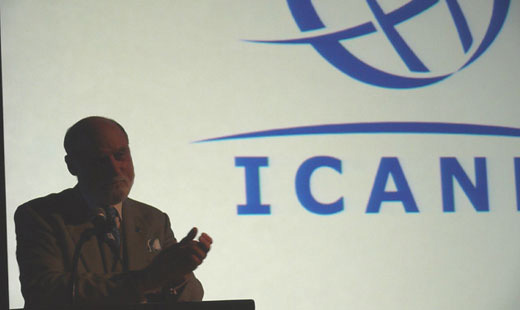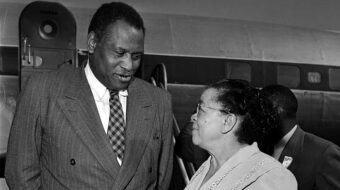
Between December 3 and 14, the International Telecommunications Union is convening a conference in Dubai in the United Arab Emirates, to renegotiate a treaty that would give the group (a part of the United Nations) crippling new powers over the Internet. The idea of creating international Internet surveillance and regulation – which many feel is an attack on civil liberties – has resulted in worldwide outrage from various groups including labor, nonprofit, and companies like Google and Mozilla.
According to a press release by the AFL-CIO, the treaty’s implications for the U.S. include increased restriction on certain content at the whim of the government, creation of a global regime of Internet content monitoring, a requirement that the Internet only be used in “rational ways” (parameters that are widely open to interpretation), government ability to shut down the Internet if they believe it will interfere with international affairs, and an incease in Internet costs.
Vint Cerf, vice president of Google, underscored the fact that the conference would “revise a decades-old treaty, in which only governments have a vote. Some proposals could allow governments to justify the censorship of legitimate speech, or even cut off Internet access in some countries.”
Terry Kramer, the U.S.’s ambassador to the World Information Technology and Services Alliance – an information technology coalition – said, “There have been active recommendations that there be an invasive approach of governments in managing the Internet, in managing the content that goes via the Internet, what people are looking at, and what they’re saying. It fundamentally violates everything we believe in terms of democracy and opportunities for individuals, and we’re going to vigorously oppose any proposals of that nature.”
Cerf added, “A state-controlled system of regulation is not only unnecessary, it would almost invariably raise costs and prices and interfere with the rapid and organic growth of the Internet we have seen since its commercial emergence in the 1990’s.”
Ellery Roberts Biddle, a policy analyst with the Center for Democracy and Technology, condemned the treaty, believing it “would mitigate the Internet’s growth and inhibit its impact on economies and societies around the globe.”
The basic idea here is that the UN’s ITU members feel the Internet ought to be government-controlled, rather than, for example in the U.S., run by nonprofit private organizations like the Internet Corporation for Assigned Names and Numbers (ICANN, a Los Angeles, California-based company that oversees the operational stability of the Internet). While the ITU’s desire, at first glance, might seem like an anti-corporate move, it poses terrible threats to the liberties of working class Internet users all over the world.
AFL-CIO president Richard Trumka has urged for the proposal to be nixed, noting it will have a negative effect on workers in the U.S. “So many workers are affected by Internet policy,” he said, “even if we don’t think about it as we go about our day. The Internet represents one of the few places in our world that is open and accessible by everyone. We need to make sure our voices are heard.”
The AFL-CIO also released an official statement accompanying a petition to stop the treaty. It said, “Internet governance decisions should be made in a transparent manner with genuine multi-stakeholder participation from civil society, governments, and the private sector.”
The Canadian Civil Liberties Association, meanwhile, called on the Canadian government to veto the UN scheme outright. “In Canada, we have many [ways] to ensure that our freedom of speech is protected. In that regard we are lucky, but in other parts of the world, governments look for more ways to watch public opinion and monitor dissent,” said CCLA public safety programs director Abby Deshman. “Freedom of expression is a basic human right and we would urge the countries that vote on this proposal to keep that in mind.
Simon Kent, a writer for the Toronto Sun, highlighted the desperation Internet users may be feeling at this point. “Cyberspace is the last frontier,” he said. “It is free, deregulated, and untouched by the dead hand of government bureaucracy.”
But European Union digital commissioner Neelie Kroes perhaps summed up the problem best when she took to Twitter and tweeted a simple message to the ITU: “If it ain’t broke, don’t fix it.”
Photo: Vint Cerf, vice president of Google, attends an ICANN meeting. He is among the fierce opposition to the ITU’s proposed Internet-restricting treaty. Veni Markovski/Flickr












Comments